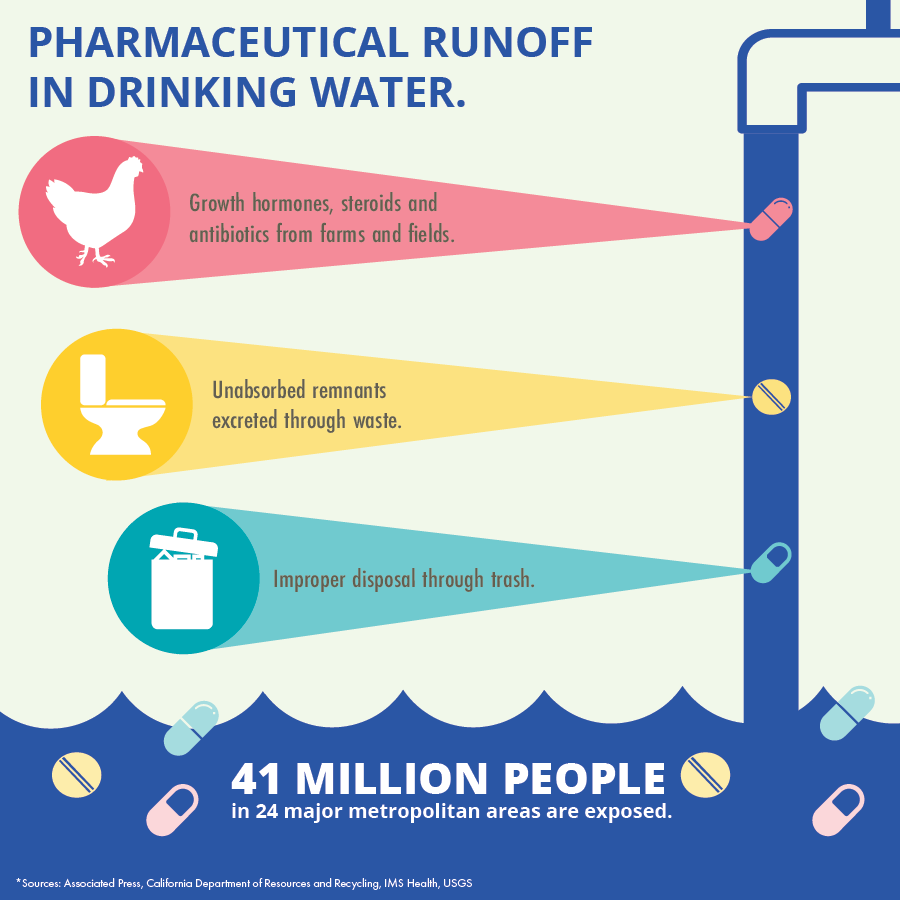Eighty percent of the world’s wastewater is discharged untreated into the environment. A study conducted by the U.S. Geological Survey found that of the 139 streams tested, 80 percent had detectable chemicals.
What’s more, these chemicals include APIs or “active pharmaceutical ingredients” that are emitted during their manufacture, use, and disposal. Medications remain traceable up to 18 miles downstream from the pharmaceutical plants.
Here are just a few of the common findings:
Metaxalone (muscle relaxant)
Oxycodone (opioid pain reliever)
Methadone (opioid prescribed for pain relief and drug withdrawal)
Butalbital (barbiturate)
Phendimetrazine (stimulant prescribed for obesity)
Carisoprodol (muscle relaxant)
In the U.K., for example, shellfish are regularly found with Prozac in their system. Exposure to this antidepressant was found to alter their behavior to make them easier prey. This, of course, impacts the entire ecosystem — including we humans.
Another study looked at over 1,000 water samples from 258 rivers in 104 countries. Medical contamination was virtually everywhere. The Kai Tak River in Hong Kong SAR had the most significant number of drugs present in a water sample, with 34 pharmaceuticals identified.
Only two rivers in Iceland and one near a village in Venezuela, whose inhabitants use no modern medicine, were completely unaffected by pharmaceutical pollution.
So… when do we collectively say NO?






When do we collectively say No? - that would be THE question looming in 2023.
Vote with your dollars. Do not support the allopathic medicine model (as best you can-I understand that in an emergency/trauma situation there is no better option). Don't use pharmaceuticals. Don't visit allopathic doctors. Eat well, get exercise and find a good naturopath for your health care needs.